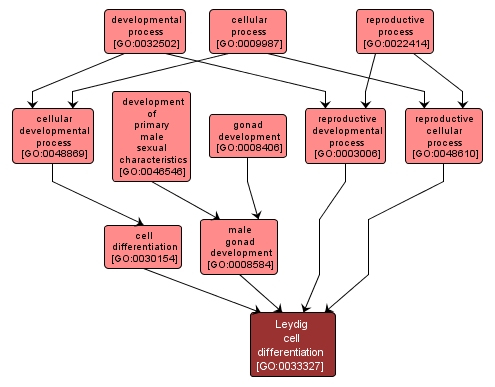GO TERM SUMMARY
|
| Name: |
Leydig cell differentiation |
| Acc: |
GO:0033327 |
| Aspect: |
Biological Process |
| Desc: |
The process whereby a relatively unspecialized cell acquires specialized structural and/or functional features of a Leydig cell. A Leydig cell is a testosterone-secreting cell in the interstitial area, between the seminiferous tubules, in the testis. |
|

|
INTERACTIVE GO GRAPH
|














